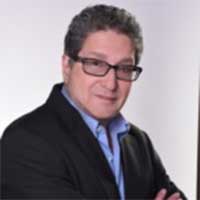The CELAC circus

By: Pedro Corzo - 08/05/2025
Guest columnist.Share:
It must be admitted that Castro-Chavismo has been very prolific in establishing regional organizations with the aim of having various instruments to control politics in any of its expressions in the hemisphere and thus build the sea of happiness dreamed of by Fidel Castro and Hugo Chávez, one of the cruelest realities for those trapped by its dystopias.
One of these institutions is the Community of Latin American and Caribbean States (CELAC), which held its most recent summit last April in Honduras under the pro tempore presidency of Mrs. Xiomara Castro, president of the Central American country, who passed the baton to Colombia in the person of Gustavo Petro.
It's interesting to note that the CELAC Summit is taking place in Honduras as the country prepares for presidential elections and the presidency is being handed over to Colombia, which will also hold general elections next year. Therefore, it's easy to deduce that these meetings tend to politically boost their hosts, providing them with a platform that, although of little prestige, serves to promote them—a practice that Fidel Castro and Hugo Chávez implemented during their respective dictatorships. They were fascinated by the circus, although they always rationed their clique's bread.
CELAC is the populist counterpart to the Organization of American States (OAS), which, in all honesty, appear to be identical twins when it comes to their mutual inefficiency in achieving their respective objectives.
CELAC is an essential instrument for promoting despotism, so its purposes will remain valid as long as autocrats like Rafael Correa and Evo Morales wield influence in the American context and individuals like Nicolás Maduro, Daniel Ortega, Xiomara Castro, and Miguel Díaz-Canel misgovern, who have always been enemies of democratic values, scrutiny, and criticism.
They and their allies, even if they lack the initial resources provided by oil-rich Venezuela, are the enlightened figures of the internet age who only value freedom and the rights of others from the perspective of their own interests. CELAC will always be an instrument of destabilization and negotiation for those seeking power, those who want to impose their will to the detriment of the rights of those governed.
Castro, Chávez, and, of course, Luis Inácio Lula da Silva, once a favorite of the Latin American and US political classes—fortunately, no one believes in this guy anymore—founded CELAC, UNASUR, and ALBA, a flurry of acronyms that have only served to spread their proposals, with very little success.
The decline of CELAC is more than evident, as evidenced by the fact that only 11 presidents of the 33 member states attended. The most prominent of all, Nicolás Maduro, whom Washington compared to Osama Bin Laden by offering the same amount of money for his capture, was absent. Cuban dictator Miguel Díaz-Canel was received in Tegucigalpa by the man some claim to be the country's true ruler, José Manuel Zelaya.
Another important aspect to highlight is that two of the three countries that are, to a certain extent, the backbone of the entity, Nicaragua and Venezuela, were absent; only Cuba participated, because its beggar dictator never misses an opportunity to demand a crumb of anything that will allow him to remain in power.
These three countries face a profound crisis of governability due to widespread popular discontent, which is forcing them to impose strict social control, prohibiting anything not explicitly permitted, while imprisoning numerous people.
Cuba has 1,152 people imprisoned for political reasons, most of them 66 years after the tyranny came to power; Venezuela has 1,601 political prisoners, and Nicaragua still has nearly 100 political prisoners after emptying its prisons by exiling several hundred prisoners and stripping them of their citizenship, although all of them are citizens with more dignity than the couple Daniel Ortega and Rosario Murillo will ever have.
«The opinions published herein are the sole responsibility of its author».